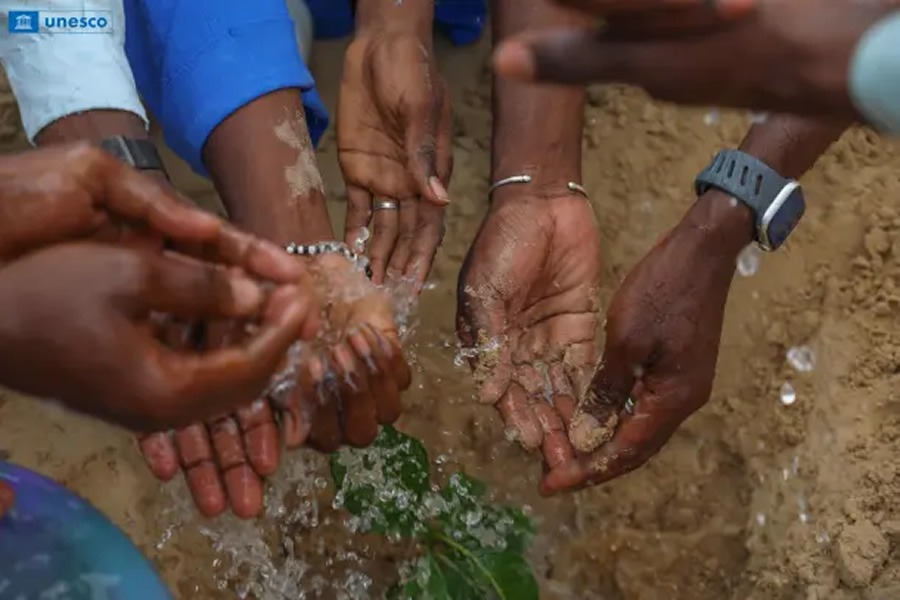
In Timbuktu, where the sands of the Sahel tell the story of centuries of resistance, a recent project has transformed the land into a symbol of reconciliation and a shared future. From 9 to 15 August, the Malian city hosted the 19th edition of the International Camp for Reforestation and Cultural Exchanges, an initiative launched by UNESCO, UNHCR and the National Commission for UNESCO and ICESCO, in partnership with the Federation of UNESCO Clubs of Mali.
For a week, young people from different backgrounds and internally displaced persons worked side by side at the Al Amar site, planting trees that represent more than an ecological action: a commitment to peace and coexistence. In the middle of the desert, shovels and watering cans became tools of hope and intercultural dialogue.
The programme combined reforestation, cultural workshops and theatre performances on access to natural resources and gender equality. In one performance, young people and community leaders acted out the challenge of sharing land and managing the commons without resorting to violence. The message was unanimous: to protect the environment is to protect the life and future of communities.
The activity underlined the crucial role of women and youth in natural resource management. Thanks to this momentum, 15 % of the rehabilitated land will be reserved for these groups, a tangible step towards equity and inclusion.
Supported by the Strengthening Human Security for Vulnerable Women and Youth project, funded by the Government of Japan, the meeting left a deep impression. In Timbuktu, planting a tree became a gesture of peace. And amidst laughter, songs and shared roots, something stronger than trees blossomed: the will to grow together.
Source: UNESCO
